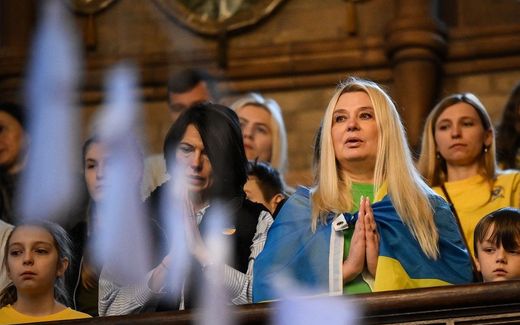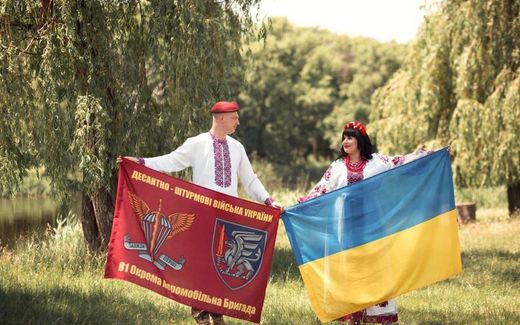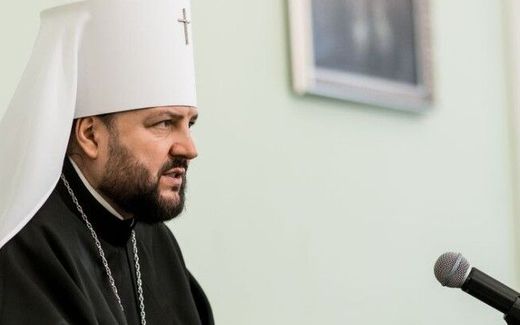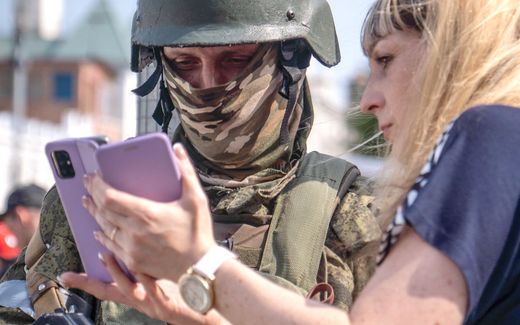Can the Catholic Church bring peace to Ukraine?
30-06-2023
Eastern Europe
Mark Wallet, RD
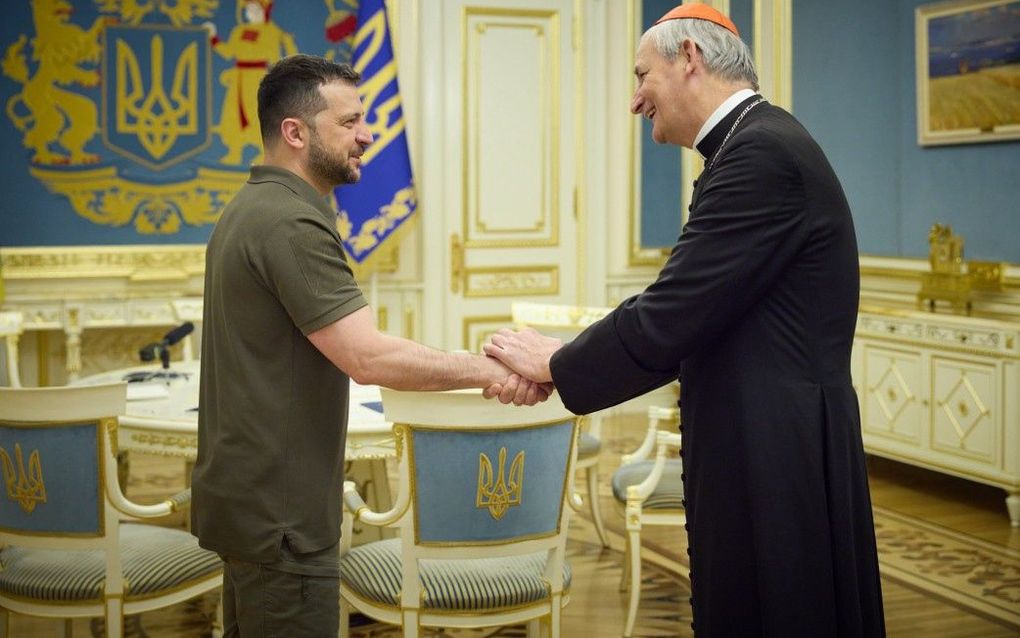
Photo EPA
Eastern Europe
After an earlier visit to Kyiv, the Italian Cardinal Matteo Zuppi is a papal peace envoy in Moscow on Wednesday and Thursday. Can the Catholic Church achieve results where political mediators flounder?
Cardinal Zuppi enjoyed a warm welcome in Moscow on Wednesday. Speaking on behalf of the Kremlin, government representative Dmitry Peskov expressed "deep appreciation" for the Vatican's and the Pope's efforts to work for peace. He promised Zuppi a meeting with a senior adviser on foreign affairs. It became clear on Thursday that the cardinal would also meet Patriarch Kirill of the Russian Orthodox Church.
A warm welcome is one thing, but can the Church change something in this conflict? Doubts from the outset surrounded Cardinal Zuppi's peace mission to Kyiv and Moscow. Certainly, from the Ukrainian side, there was the necessary scepticism. After a meeting between Pope Francis and Ukrainian President Volodymyr Zelensky in May, the latter declared that Ukraine did not need a mediator. He urged the Vatican not to put "the aggressor and the victim" on the same level and to condemn Russian war crimes unequivocally.
Return of children
Despite this somewhat awkward meeting, on the sidelines of a visit by Zelensky to Rome, the Vatican did shortly afterwards announce the sending of a peace envoy to Ukraine and Russia in the person of Cardinal Zuppi.
The choice for Zuppi was not surprising. The 67-year-old archbishop of Bologna has quite a trackrecord in peace talks. He was closely involved, for instance, in securing an agreement in Mozambique in 1992, ending a long and bloody civil war. In mediations in civil wars in Guatemala in the 1990s and in Burundi at the beginning of this century, Zuppi again played an important role.

Zuppi travelled to Kyiv on 5 and 6 June, where he spoke with Zelensky, among others. The day after the visit, the cleric indicated that he had not acted as a mediator but that his commitment had been "to show interest (...) and to listen so that paths to peace can be found in the conflict".
That sounds broad, but insiders say Zuppi's mission also has at least one concrete goal: the return of the 19,500 Ukrainian children, who Kyiv says have been transferred to Russia since February 2022. It seems Zelensky asked the pope in May to mean something in this.
Previously, at Kyiv's request, the Vatican played a role in exchanging Russian and Ukrainian prisoners; the pope told during a trip to Kazakhstan in September 2022.
Distrust
Vaticanist Robert Mickens, a correspondent in Rome for the French newspaper La Croix, is convinced that such a deployment is the only thing Zuppi can achieve in Moscow and Kyiv. "There is a deep mistrust in the Orthodox world towards the Roman Catholic Church," he says by phone. "The Pope and the Roman Catholic Church do not play any significant role in the Orthodox world."
Mickens argues that Moscow and Kyiv receive the papal envoy, regardless of his humanitarian role, only because it is good for their legitimacy. He stresses that the pope is too politically controversial for Kyiv to play any other role. "This pope is of Latin American descent, which translates into distrusting Western politics and NATO. In line with that, he has called the war a NATO mistake."
According to Mickens, what may help Zuppi in his humanitarian mission is his involvement with the religious community Sant'Egidio. That is a charitable organisation with roots in Rome but which now has a broad international network. The founder of Sant'Egidio is known to have good ties with Patriarch Kirill.
Moral authority
According to Mickens, Zuppi's work in Mozambique and other countries is difficult to compare with his mission in Orthodox Russia and Ukraine.
However, the peace settlements achieved there highlight the Church's potential to play an important role in negotiations. "In the civil war in Mozambique, the church was the only institution represented on both sides of the conflict," says Dr Jan van Butselaar from the Netherlands. The former secretary of the Dutch Missionary Council did his PhD on the history of the Church in Mozambique and studied the role of the Church in peace talks in Mozambique and other African countries.
"In Mozambique, the Roman Catholic and Protestant churches worked closely together in the search for peace," he says. "Their commitment contributed greatly to peace. The churches were involved in international negotiations and facilitated talks at the local level."
A factor in the African context is that the Church enjoys broad popular trust in many countries and is one of the few institutions active throughout the country. The Roman Catholic Church has the advantage of being a world church and thus not bound by a national identity. "This allows the church to speak out more openly and to exert pressure," he said. Van Butselaar thinks of reputational damage in this regard. "Especially for African leaders, it reflects negatively on them if they are no longer welcome by the pope. The Church is a moral authority. It is advantageous anyway if it stands behind you."
Van Butselaar is hopeful that Zuppi's visit "represents more than many other attempts being made. (...) Any attempt made should be appreciated and respected. Moreover, we should not underestimate the diplomatic power and skill of the Vatican."
This article was translated by CNE.news and previously published in the Dutch Christian daily Reformatorisch Dagblad on June 29th, 2023.
Related Articles

